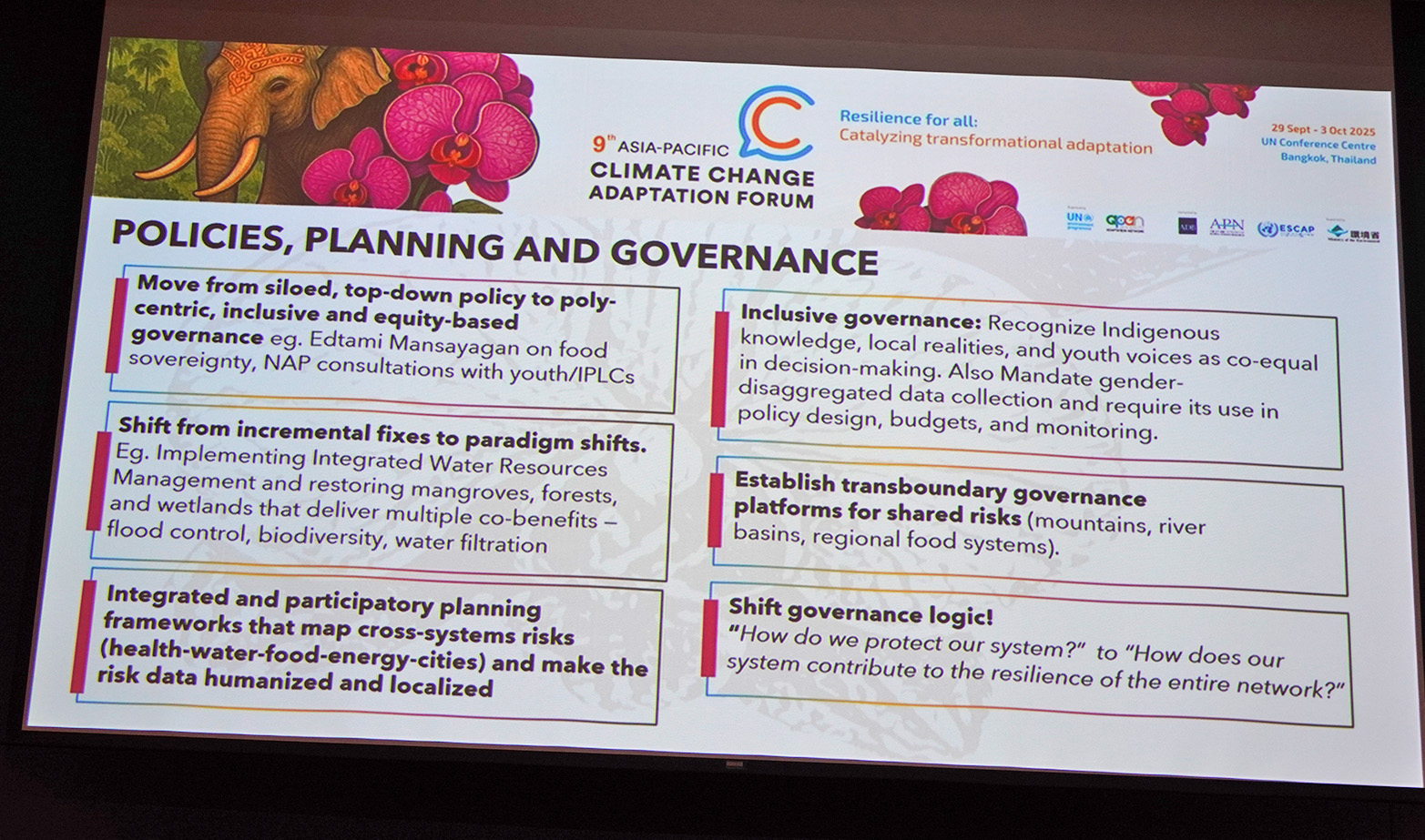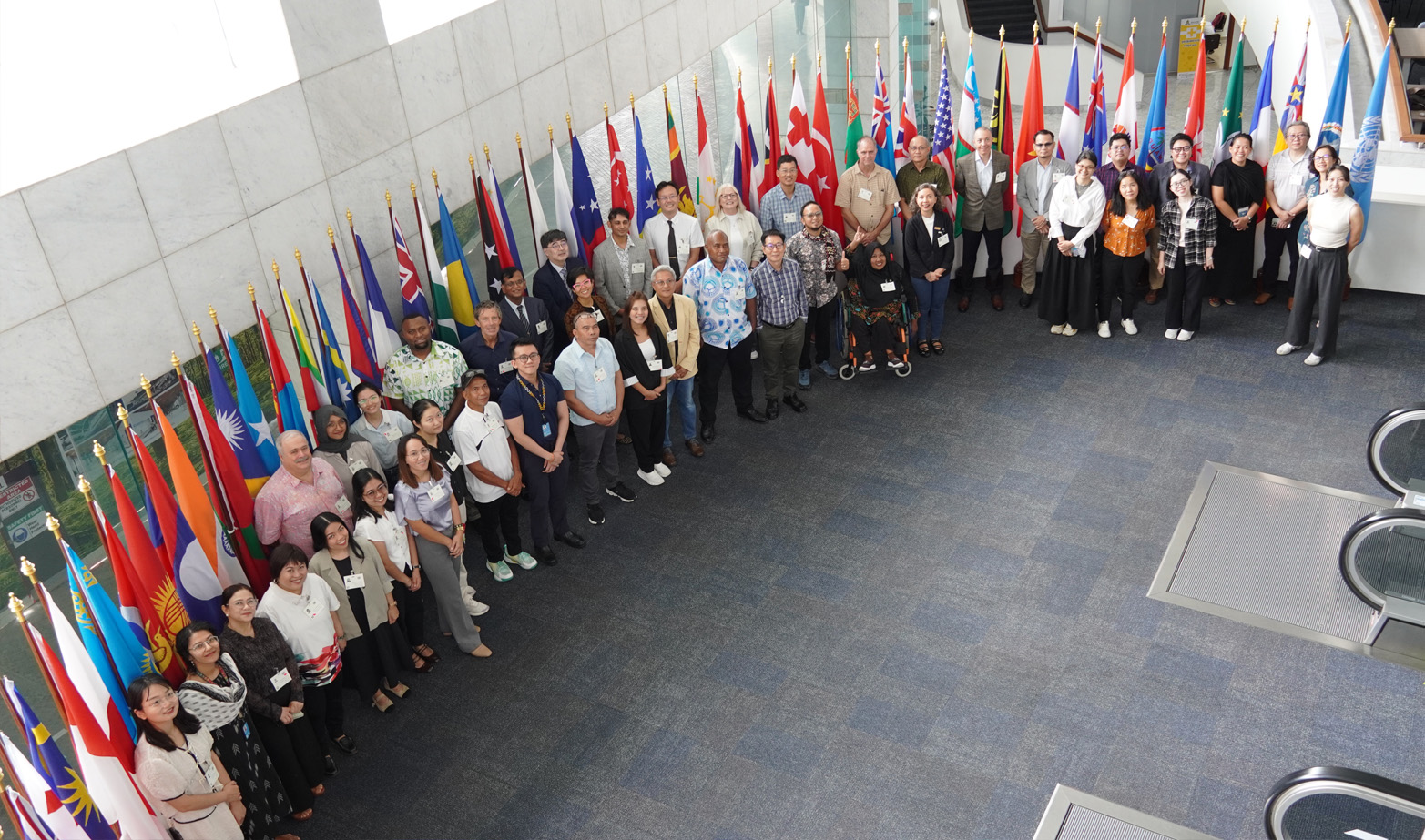
Participants of the 9th Asia-Pacific Climate Change Adaptation Forum at the United Nations Conference Center (UNCC)
in Bangkok, Thailand. (Anggit/Samdhana)
- admin
- 08 October 2025
- News
Resilience for All: Catalyzing Transformational Adaptation
The 9th Asia-Pacific Climate Change Adaptation Forum took place from September 29 – October 3, at the United Nations Conference Center (UNCC) in Bangkok, Thailand, and organized by the Asia-Pacific Adaptation Network (APAN).
Representatives from States, financing institutions, academia and research, international organisations, UN agencies, civil society organizations, youth organizations and the private sector are among the 850 participants coming from more than 50 countries. It aims to build and strengthen partnerships across sectors for adaptation action and accelerate solutions across the region.
The Forum agenda is rich and diverse, featuring deep-dive sessions, plenaries and parallel technical sessions. In the five days, participants explored the five key enablers of transformational adaptation: Policies, planning, and governance; Science, evidence, and knowledge systems; Innovation, technology, and practices; Financial systems, instruments, and modalities; and Social capital, empowerment, and equity. These enablers were discussed across the following four systems: Food and agriculture; Land, water, ecosystems and biodiversity; Cities, infrastructure and industries; and Health, livelihoods, and society.
The session on Financing Transformation Adaptation aims to shift the conversation from isolated approaches and short-term projects to collaborative strategies that unlock funding for resilience, equity, and structural change.
While the session on Locally Led Adaptation (LLA) emphasized that adaptation must address local priorities through context-specific, inclusive, and participatory solutions. It highlighted creating opportunities for youth, recognizing communities’ innovative potential, and ensuring bottom-up communication that can influence national and international decisions. The discussion also underscored the intersectionality of people’s identities, reminding us that adaptation must reflect the diverse realities of human experience.
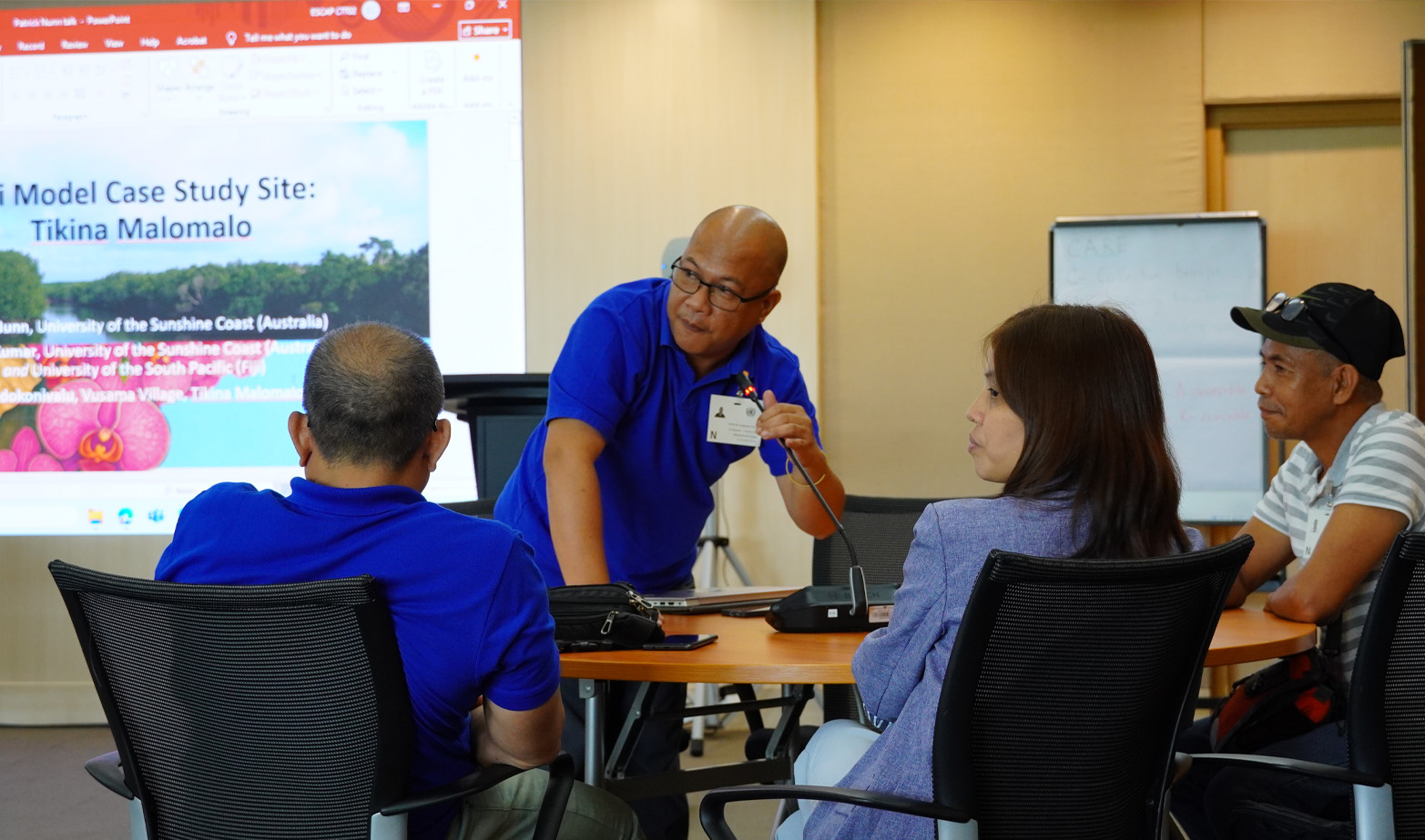
The Forum opened on October 1, 2025, it was highlighted that transformational adaptation that must be central to development planning if the Asia-Pacific is to withstand escalating climate risks.
Aisulu Uatta, youth leader from Mongolia reminded participants that young people are active partners today, not just in the future.
Ibu Armida Salsiah Alisjahbana of UNESCAP called for mainstreaming risk-informed climate action across all sectors, prioritizing nature-based solutions, climate-smart infrastructure, and people-centered early warning systems.
Youssef Nassef of UNFCCC explained that transformational adaptation is about shifting the question from “what are we adapting to” to “what are we adapting towards.” He noted that adaptation lies on a continuum between incremental and transformative action, shaped by scale, transboundary challenges, and long-term foresight.
Jim Skea of IPCC reinforced that Asia-Pacific is the world’s most climate-vulnerable region, already facing severe impacts, and that systemic change guided by science and cooperation is essential.
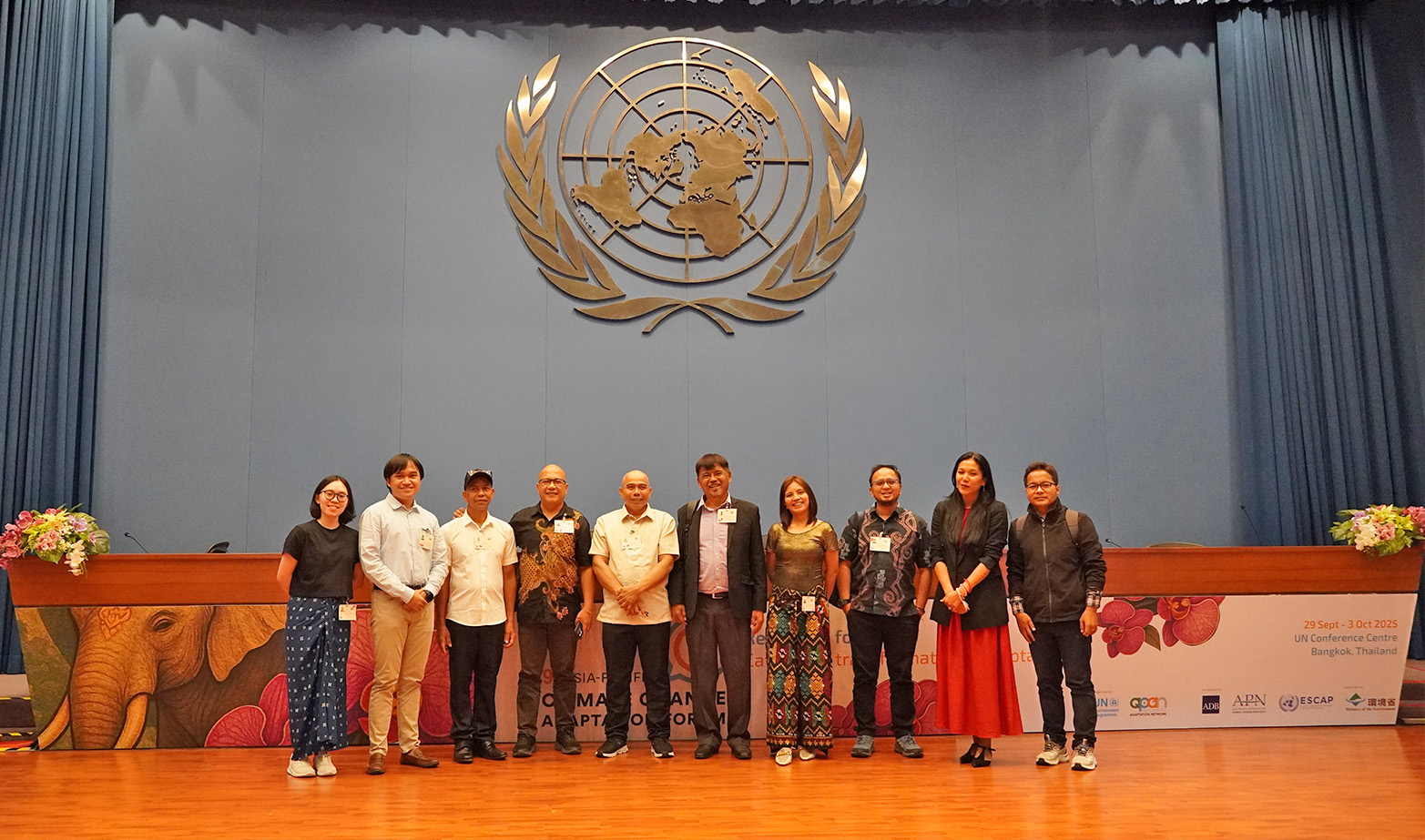
Samdhana Institute, together with partners: MASIPAG, KAIL, and community leader, presented the output of the Southeast Asia Regional Summit on Food Sovereignty and Community Resilience that was held last September 19-22 in the Philippines. Mr. Edtami Mansayagan, Samdhana Fellow and former member of the United Nations Expert Mechanism on Rights of the Indigenous Peoples (UN-EMRIP) for Asia and the Pacific gave a keynote address on IPLC-Led food Systems, community stewardship and indigenous knowledge on the 2nd of October 2025.
In the closing ceremony, Mozaharul Alam, Regional Sub-programme Coordinator, of the Climate Action Program of UNEP Asia and the Pacific Office, and Head, APAN Secretariat, sent his farewell message that all experiences and insights have enriched every session reminded us that resilience is not just a goal, it is also a journey that we must walk together. “The APAN Forum has been a powerful demonstration to the strength of collaboration and developed shared vision. Together, we have explored bold ideas, forged new partnerships, and deepened our understanding of the pathways toward inclusive and transformative adaptation across the Asia-Pacific region.”
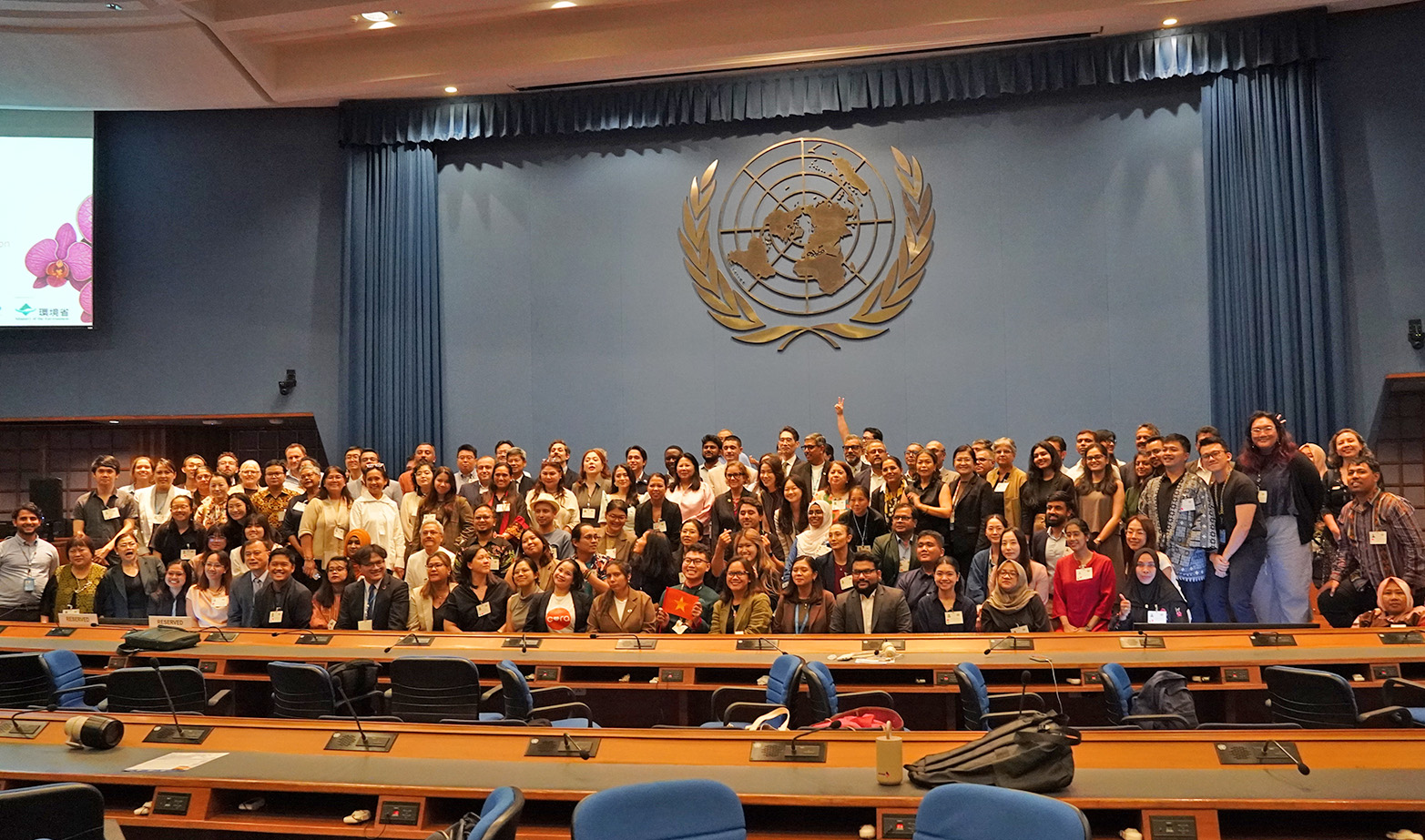
The Asia Pacific Adaptation Network (APAN) serves as a knowledge platform to equip adaptation practitioners in the region with the information, knowledge, and tools to design, implement and monitor climate change adaptation measures, foster access to technologies and finance, and build capacity for integrating climate change adaptation into national development policies, strategies and plans.
With support from the Ministry of Environment of the Government of Japan, APAN was developed and launched by the United Nations Environment Program (UNEP) in 2009 under the Global Adaptation Network (GAN). APAN has established close partnerships with key organizations and has become an important adaptation knowledge mobilizer in Asia and the Pacific Region.
